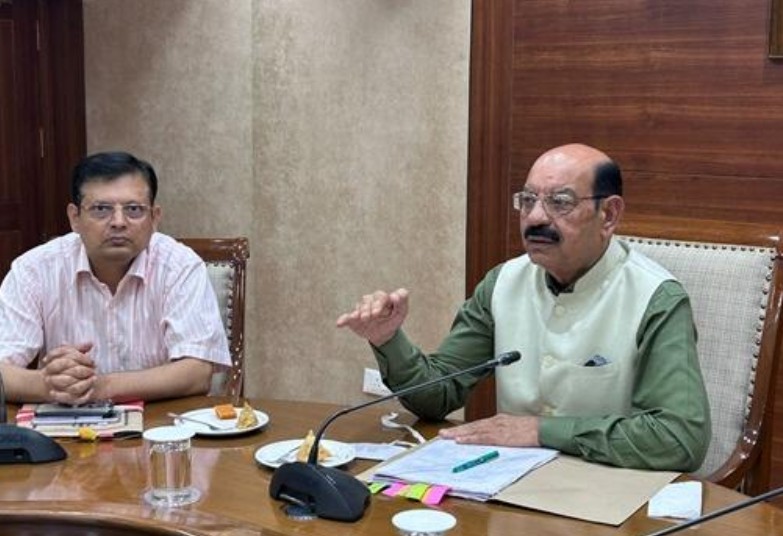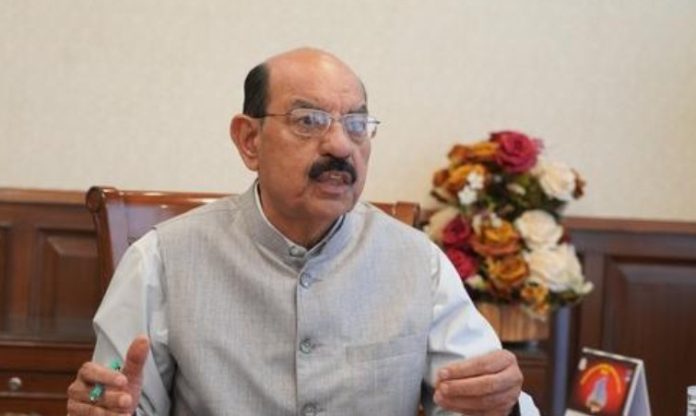Punjab’s Minister for Horticulture, Mohinder Bhagat, has issued a directive to state officials to conduct an in-depth study of the horticulture sector in neighboring states. This move aims to enhance Punjab’s agricultural practices by incorporating successful techniques and policies from regions that have demonstrated excellence in horticulture. The minister emphasized the need for officials to thoroughly examine various aspects of the sector, including crop diversification, modern farming techniques, marketing strategies, and government support programs in states such as Haryana, Himachal Pradesh, and Uttar Pradesh.
The directive comes at a crucial time when Punjab’s agriculture sector is facing multiple challenges, including declining soil fertility, water scarcity, and diminishing returns from traditional crops such as wheat and paddy. Given that horticulture is emerging as a viable alternative to traditional farming, the minister believes that learning from neighboring states will provide valuable insights that can be adapted to Punjab’s unique agro-climatic conditions.
The officials have been tasked with studying successful models of fruit and vegetable cultivation, floriculture, and greenhouse farming in states where horticulture has contributed significantly to rural economies. In Haryana, for instance, the government has implemented various subsidy schemes and infrastructure development projects that have facilitated the rapid growth of horticulture. By examining how Haryana has promoted diversification, Punjab officials can identify best practices that could be replicated in their state.
Similarly, Himachal Pradesh has made significant strides in apple and stone fruit cultivation, making it one of the leading states in fruit production. The state’s policies on cold storage facilities, cooperative marketing, and organic farming have played a crucial role in boosting horticulture. Punjab officials have been directed to study Himachal’s cold chain management system and how it has helped reduce post-harvest losses.
In Uttar Pradesh, advancements in floriculture and vegetable farming have provided new income opportunities for farmers. The state has encouraged the adoption of high-yielding varieties and technology-driven farming methods. By understanding these innovations, Punjab can integrate similar initiatives to support its horticulture farmers.

Minister Bhagat has also urged officials to interact with farmers, research institutions, and government agencies in these states to gather firsthand knowledge of challenges and solutions in the horticulture sector. He highlighted that Punjab needs to shift from a wheat-paddy monoculture to a more diverse cropping system, and horticulture offers an excellent alternative with better economic prospects for farmers.
The study will not only focus on cultivation techniques but also on market linkages, post-harvest management, and value addition. The minister emphasized that without a robust supply chain, horticulture cannot reach its full potential. Therefore, officials will analyze how other states have developed market infrastructure, farmer-producer organizations (FPOs), and export-oriented strategies.
Additionally, the minister directed officials to explore the use of modern technology such as precision farming, hydroponics, and vertical farming. With changing climate patterns and increasing pressure on land resources, Punjab needs to adopt innovative methods that maximize productivity while conserving resources. The officials will assess how states like Maharashtra and Karnataka have successfully integrated technology in horticulture and whether such models can be adapted for Punjab.
The government is also considering collaborations with national and international agricultural research institutions to introduce high-yield and climate-resilient horticultural crops in Punjab. Minister Bhagat stressed the importance of research-backed policymaking and urged officials to work closely with agricultural universities and experts to ensure that Punjab’s horticulture policies are aligned with global best practices.
Farmers’ welfare remains at the heart of this initiative. The study aims to identify ways to increase farmers’ income by providing them with better market opportunities, financial assistance, and training programs. The minister assured that the government is committed to making horticulture a lucrative option for Punjab’s farmers.
After the study is completed, officials will submit a detailed report with recommendations for policy changes, infrastructure development, and financial incentives. The state government will then formulate a comprehensive action plan to implement these recommendations and promote horticulture as a sustainable and profitable sector in Punjab.
By drawing lessons from neighboring states and integrating innovative solutions, Punjab aims to strengthen its horticulture sector and provide farmers with more resilient and high-income farming opportunities. Minister Bhagat’s proactive approach reflects the government’s commitment to diversifying agriculture and ensuring long-term sustainability for Punjab’s farmers.


